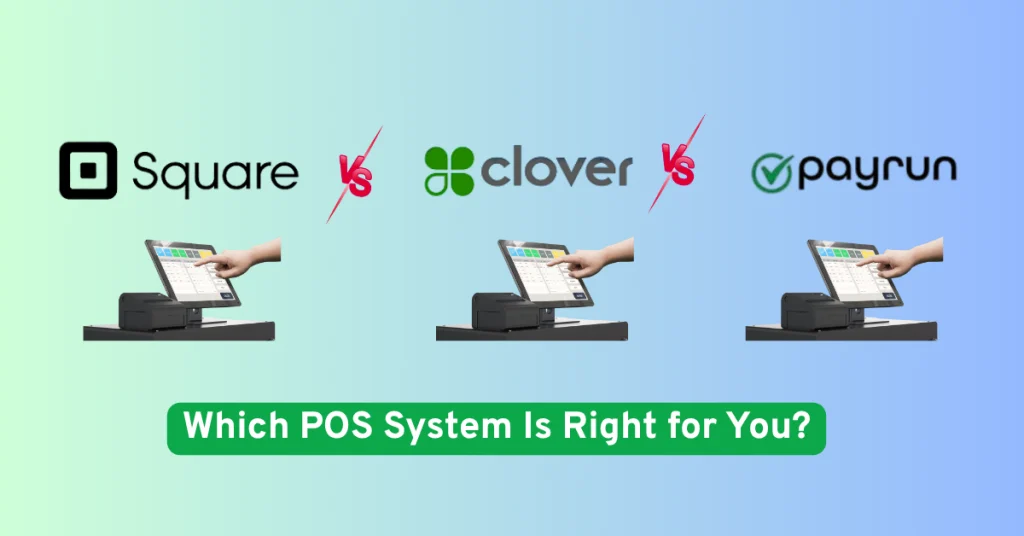
The merchant services industry is undergoing a profound transformation, driven by advancements in technology, evolving consumer expectations, and regulatory developments. As businesses strive to enhance payment efficiency and security, new trends are emerging that will shape the future of payment processing and financial transactions.
From AI-driven automation to the rise of cryptocurrency payments, companies must stay ahead of these developments to remain competitive. This article explores the most significant trends in merchant services for 2025 and beyond, offering insights into how businesses can leverage these innovations to optimize their payment infrastructure.
1. Artificial Intelligence and Automation in Payment Processing
Artificial intelligence (AI) is playing a pivotal role in modernizing merchant services, streamlining operations, and enhancing security. AI-powered payment solutions improve transaction efficiency and reduce fraud risks through advanced data analysis and real-time decision-making.
Key AI Applications in Merchant Services:
- Fraud Detection and Prevention – AI algorithms analyze transaction patterns to identify and mitigate fraudulent activities.
- Automated Payment Reconciliation – AI enhances financial accuracy by automating transaction matching and reporting.
- Personalized Customer Experiences – AI-driven insights help businesses offer tailored payment options based on user behavior.
By leveraging AI and automation, businesses can enhance operational efficiency, minimize errors, and improve customer satisfaction.
2. The Expansion of Contactless and Mobile Payments
Consumer demand for fast, secure, and seamless payment experiences has fueled the widespread adoption of contactless payment solutions. With Near Field Communication (NFC) and QR code payments becoming standard, businesses must integrate these technologies to remain competitive.
Benefits of Contactless Payment Solutions:
- Expedited Transactions – Payments are processed in seconds, reducing checkout times.
- Enhanced Security – Encrypted transactions mitigate fraud risks.
- Improved Customer Convenience – Compatible with smartphones, wearables, and contactless cards.
As digital wallets and mobile payment applications such as Apple Pay, Google Pay, and Samsung Pay gain traction, businesses that adopt contactless solutions will enhance customer engagement and operational efficiency.
3. The Rise of Cryptocurrency and Blockchain-Based Payments
Cryptocurrency adoption in merchant services is accelerating, providing businesses with an alternative to traditional payment systems. With the rise of Bitcoin, Ethereum, and stable coins, companies can leverage blockchain technology for secure, transparent, and decentralized transactions.
Advantages of Cryptocurrency Payments:
- Reduced Transaction Fees – Eliminates intermediary costs associated with traditional banks.
- Faster Cross-Border Payments – Enables real-time international transactions without delays.
- Enhanced Security – Blockchain technology ensures immutable transaction records.
Major corporations, including Visa, Mastercard, and PayPal, are integrating crypto payment solutions, signaling a shift towards broader adoption. Businesses should assess their potential role in this evolving financial ecosystem.
4. Embedded Finance and Buy Now, Pay Later (BNPL) Solutions
The integration of financial services into non-financial platforms, known as embedded finance, is reshaping the payment landscape. Meanwhile, Buy Now, Pay Later (BNPL) solutions are gaining popularity as consumers seek flexible payment options.
Why Businesses Are Investing in BNPL & Embedded Finance:
- Increased Sales Conversion – Customers are more likely to complete purchases with flexible payment plans.
- Enhanced Customer Retention – BNPL encourages repeat transactions and loyalty.
- Appeal to Younger Consumers – Millennials and Gen Z favor BNPL over traditional credit options.
Providers such as Klarna, Affirm, and Afterpay are driving the BNPL revolution, prompting businesses to incorporate these solutions to enhance the consumer payment experience.
5. Biometric Authentication for Enhanced Security
As cybersecurity threats continue to evolve, businesses are implementing biometric authentication to strengthen payment security. Technologies such as fingerprint recognition, facial recognition, and voice authentication are becoming integral to modern merchant services.
Benefits of Biometric Payment Solutions:
- Enhanced Fraud Protection – Biometric identifiers are unique and difficult to replicate.
- Faster Transaction Processing – Eliminates the need for PINs and passwords.
- Seamless Customer Experience – Provides a frictionless payment process for users.
Financial institutions and payment providers are investing in biometric technology to reinforce security and regulatory compliance while enhancing user convenience.
6. The Shift Toward Omnichannel Payment Solutions
Consumers expect a seamless shopping experience across multiple platforms, necessitating the adoption of omnichannel payment solutions. These systems unify online, in-store, and mobile transactions, ensuring a consistent payment experience.
Core Features of Omnichannel Payment Systems:
- Integrated Payment Processing – Supports credit/debit cards, mobile wallets, bank transfers, and cryptocurrency payments.
- Real-Time Synchronization – Ensures transaction data is updated across all sales channels.
- Comprehensive Analytics – Provides insights into customer purchasing behavior.
Retailers, restaurants, and eCommerce businesses are increasingly adopting omnichannel payment strategies to enhance operational efficiency and customer satisfaction.
7. Regulatory Compliance and Data Security in Merchant Services
As digital transactions grow in volume, regulatory bodies are implementing stricter compliance requirements to ensure consumer protection and data security. Businesses must remain vigilant in adhering to these regulations to avoid financial and legal repercussions.
Key Regulatory Trends Impacting Merchant Services:
- Stronger Data Protection Laws – Compliance with GDPR (General Data Protection Regulation) and CCPA (California Consumer Privacy Act).
- Enhanced KYC (Know Your Customer) and AML (Anti-Money Laundering) Regulations – Stricter identity verification processes.
- Reforms in Interchange Fees – Potential changes in transaction processing costs.
Organizations must invest in robust security measures, including end-to-end encryption and tokenization, to ensure compliance with evolving industry standards.
Conclusion
The merchant services industry is experiencing a dynamic shift, with technological advancements and evolving consumer behaviors shaping the future of payment processing. From AI-driven automation and biometric authentication to cryptocurrency adoption and omnichannel solutions, businesses must embrace innovation to remain competitive.
Organizations that proactively integrate these emerging payment technologies will enhance transaction efficiency, security, and customer satisfaction. Now is the time for businesses to assess their merchant service strategies and align with the evolving digital payment ecosystem.
Are You Ready for the Future of Merchant Services?
Businesses seeking to optimize their payment processing solutions should explore cutting-edge technologies to stay ahead in an increasingly digital economy. Embrace the future of payments today and position your business for success.
Our Other Services: Point of Sale System, Retail Point of Sale System, Restaurant Point of Sale System, Small Point of Sale System



